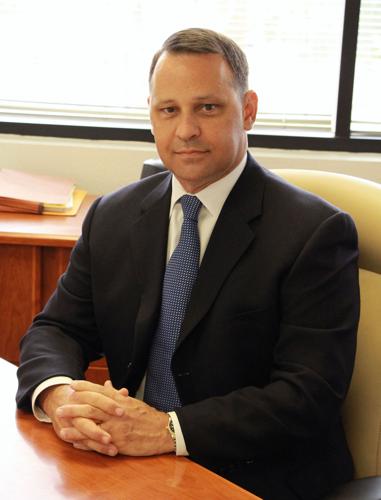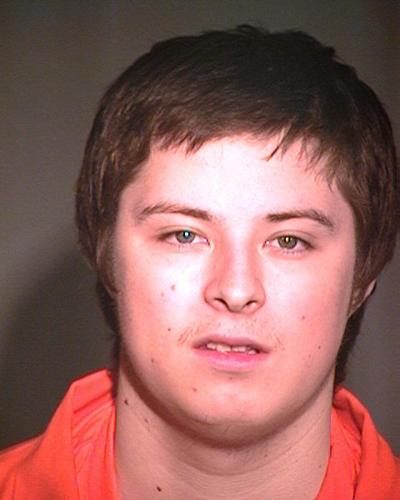PHOENIX — Arizona judges are free to sentence juveniles to what amount to de facto life sentences, the state Supreme Court ruled Friday.
In a unanimous decision, the justices insisted they were not ignoring the repeated rulings of the nation’s high court that appear to prohibit that.
Instead, they said, those legal precedents involved juveniles who were sentenced to life behind bars without possibility of parole for a single crime.
The Arizona cases involved in Friday’s ruling — including two from Tucson — all involved juveniles sentenced to consecutive sentences for multiple crimes, the justices here wrote.
That means judges here handling juvenile cases are not bound by the U.S. Supreme Court precedents, even though their consecutive terms amount to the same thing, wrote Arizona Justice John Lopez.
Lopez did not stop there. He and his colleagues took a swipe at the nation’s high court for issuing its original rulings barring life sentences for juveniles in the first place, saying those decisions were based on “judgments of other nations and the international community.”
“Relying on a single study about the sentencing practices of other nations, the (U.S. Supreme) Court observed that the United States stood alone in subjecting juveniles to parole-ineligible sentences,” Lopez said.
That conclusion clearly did not sit will with the Arizona justices.
“We pause here to express our concern with the Court’s reliance on international laws and judgments to resolve an issue raised under the United States Constitution, particularly when they are invoked by the Court to disregard the most reliable evidence of national consensus: the will of the American people as expressed through their state laws,” Lopez wrote. “Such implicit deference to foreign decisions runs the risk of ceding to foreign government what our laws and our Constitution mean, and what our policies in America should be.”
Friday’s decision involves three cases:
Distillers at Whiskey Del Bac harvest several barrels of whiskey on, Oct. 2, 2020. The process includes checking fluid levels in the barrels, tasting for quality and pouring the whiskey into a vat where water will be added before going onto bottling. (Josh Galemore / Arizona Daily Star)
- Martin Raul Soto-Fong, sentenced to three consecutive life terms for the 1992 robbery and triple murder at a Tucson El Grande Market, who will not be eligible for release until he has served 109 years behind bars;
- Wade Nolan Clay, convicted of murder and attempted murder in a case out of Mohave County and sentenced to life with the possibility of parole after 25 years, and 12 years after that;
- Mark Noriki Kasic Jr., sentenced to consecutive prison sentences totaling nearly 140 years after being convicted of six counts of arson and other charges stemming from a series of fires in Tucson garages and homes between 2007 and 2010 while the home occupants were asleep inside.
Lawyers for all three petitioned for reduction of sentence based on U.S. Supreme Court rulings in the last decade that there was a “national consensus” against imposing parole-ineligible life sentences on juveniles. The attorneys said the consecutive sentences, while allowing for parole, effectively became life terms, which they said the nation’s high court has precluded.
Lopez acknowledged the most recent U.S. Supreme Court ruling states that sentences of life without parole are barred “for all but the rarest of juvenile offenders, those whose crimes reflect permanent incorrigibility.”
But Lopez said he and his colleagues are interpreting that as not a categorical ban.
“It merely mandated that trial courts follow a certain process — considering an offender’s youth and attendant characteristics — before imposing a particular penalty,” he wrote.
Lopez also said nothing in those rulings says juveniles “must have a chance for reconciliation with society.”
In each of the cases decided by the justices in Washington, the juveniles were sentenced to life without parole for a single crime. What happened here, Lopez said, is “very different.”
“Each received multiple sentences for multiple crimes which, in the aggregate, resulted in terms of incarceration that will or may exceed their life expectancy,” he wrote. That difference, Lopez said, is what allows the Arizona Supreme Court to uphold the sentences at issue.
Also, the Arizona Legislature has never said that juveniles cannot be locked up for life.
Lopez said courts elsewhere that have held de facto life terms unconstitutional “have invariably usurped the legislative prerogative to devise a novel sentence scheme or otherwise delegated the task to trial courts to do so.”
“Here, petitioners invite us to invade the province of the legislature,” Lopez said.
The court has to act out of “our respect for the separation of powers, the will of our citizens, and the principles of judicial restraint,” he said.
Photos: Autumn arrives in the Santa Catalina Mountains
Fall colors
Updated
Light shines through a group of leaves changing colors in Marshall Gulch in Summerhaven, Ariz., on October 8, 2020.
Fall colors
Updated
A hiker and their dog walk past trees beginning to change colors along Bear Wallow trail in the Santa Catalina Mountains, on October 8, 2020.
Fall colors
Updated
Two people walk past tree beginning to change colors in Ski Valley near Summerhaven, Ariz., on October 8, 2020.
Fall colors
Updated
A bird flies out of a group of trees with yellow leaves in Summerhaven, Ariz., on October 8, 2020.
Fall colors
Updated
Trees are beginning to change colors for the fall season along Bear Wallow trail in the Santa Catalina Mountains, on October 8, 2020.
Fall colors
Updated
The tops of trees start to change their color along Bear Wallow trail in the Santa Catalina Mountains, on October 8, 2020.
Fall colors
Updated
Light shines through leaves beginning to change colors in Ski Valley near Summerhaven, Ariz., on October 8, 2020.
Fall colors
Updated
A women collects colored leaves for at home art projects which have fallen from the trees above along Bear Wallow trail in the Santa Catalina Mountains, on October 8, 2020.
Fall colors
Updated
A red leaf rest on the ground along Bear Wallow trail in the Santa Catalina Mountains, on October 8, 2020.
Fall colors
Updated
Light shines through a group of leaves changing colors in Marshall Gulch at Summerhaven, Ariz., on October 8, 2020.
Fall colors
Updated
An employee from The Mount Lemmon Cookie Cabin Pizzeria and Bakery walks though two large trees beginning to change colors in front of the pizzeria and bakery in Summerhaven, Ariz., on October 8, 2020.
Fall colors
Updated
Customers walk past a tree changing colors while waiting for The Mount Lemmon Cookie Cabin Pizzeria and Bakery to open in Summerhaven, Ariz., on October 8, 2020.
Fall colors
Updated
A pile of dried leaves rest on the ground at Marshall Gulch in Summerhaven, Ariz., on October 8, 2020.
Fall colors
Updated
While looking at the changing colors along a hiking trail in Bear Wallow, a hiker walks past a tree with red leaves along Bear Wallow trail in the Santa Catalina Mountains, on October 8, 2020.
Fall colors
Updated
Light shines on a tree changing colors as well as a tree which hasn't begun to change along Bear Wallow trail in the Santa Catalina Mountains, on October 8, 2020.







